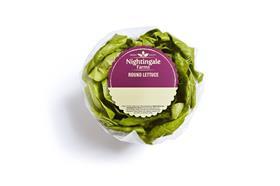
The NFU has formally complained to the Trading Standards Institute over retailers' use of fake farm branding that it said could potentially mislead consumers about a product's country of origin.
Tesco’s new branded discount range, which includes names such as Rosedene and Woodside Farms, is a recent high-profile example, the NFU said, but it urged all retailers to “consider seriously” the results of a survey that show that mixing imported product with British product under the same fictional farm name can be misleading to shoppers.
At least three in five respondents to a YouGov survey commissioned by the NFU, who described fake farm products as ‘definitely’ or ‘probably’ British, said they would feel misled if this was not the case.
Aldi has now made a commitment to only source British product in its fictional farm brands by the end of March 2017, NFU president Meurig Raymond said.
“The NFU’s legal team has looked at this carefully and as a result we are asking the Trading Standards Institute to look at whether ‘fake’ farm branding complies with the relevant legal requirements,” he said. “I have spoken to senior management at Tesco to highlight our members’ concerns about the use of these fake farm brands.”
NFU Cymru president Stephen James, speaking at this year’s Royal Welsh Show, said fake farm brands are “completely unacceptable”. “We believe [they] are misleading consumers. This practice has been going on across the retail sector for a long time and enough is enough.
“In particular, NFU members feel the brands confuse shoppers about the country of origin of the food products in question. Country of origin labelling is important because we know from consumer surveys that shoppers want to buy British food products; clearly, consumers cannot exercise that choice without clear country of origin labelling.'
The NFU’s YouGov online survey questioned 1,796 adults between 8 and 9 June 2016. The respondents were asked various questions about food information and labelling, and were shown various food products sold under a ‘fake’ farm brand.
Other findings included that around one in five respondents were unclear as to whether the ‘fake’ farm brands were real farms, while a third were ‘unsure’ about the provenance of products with a ‘fake’ farm brand.



